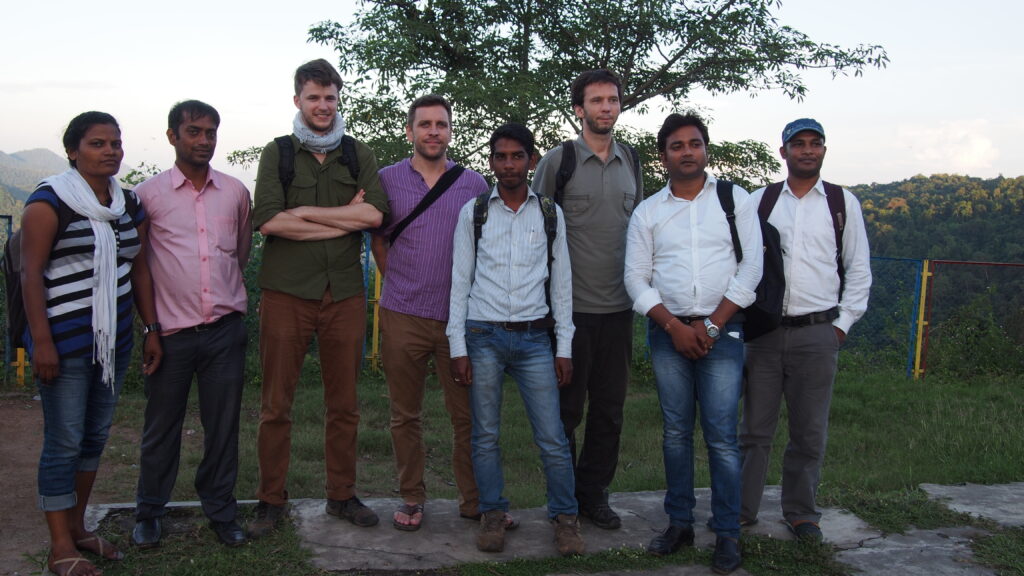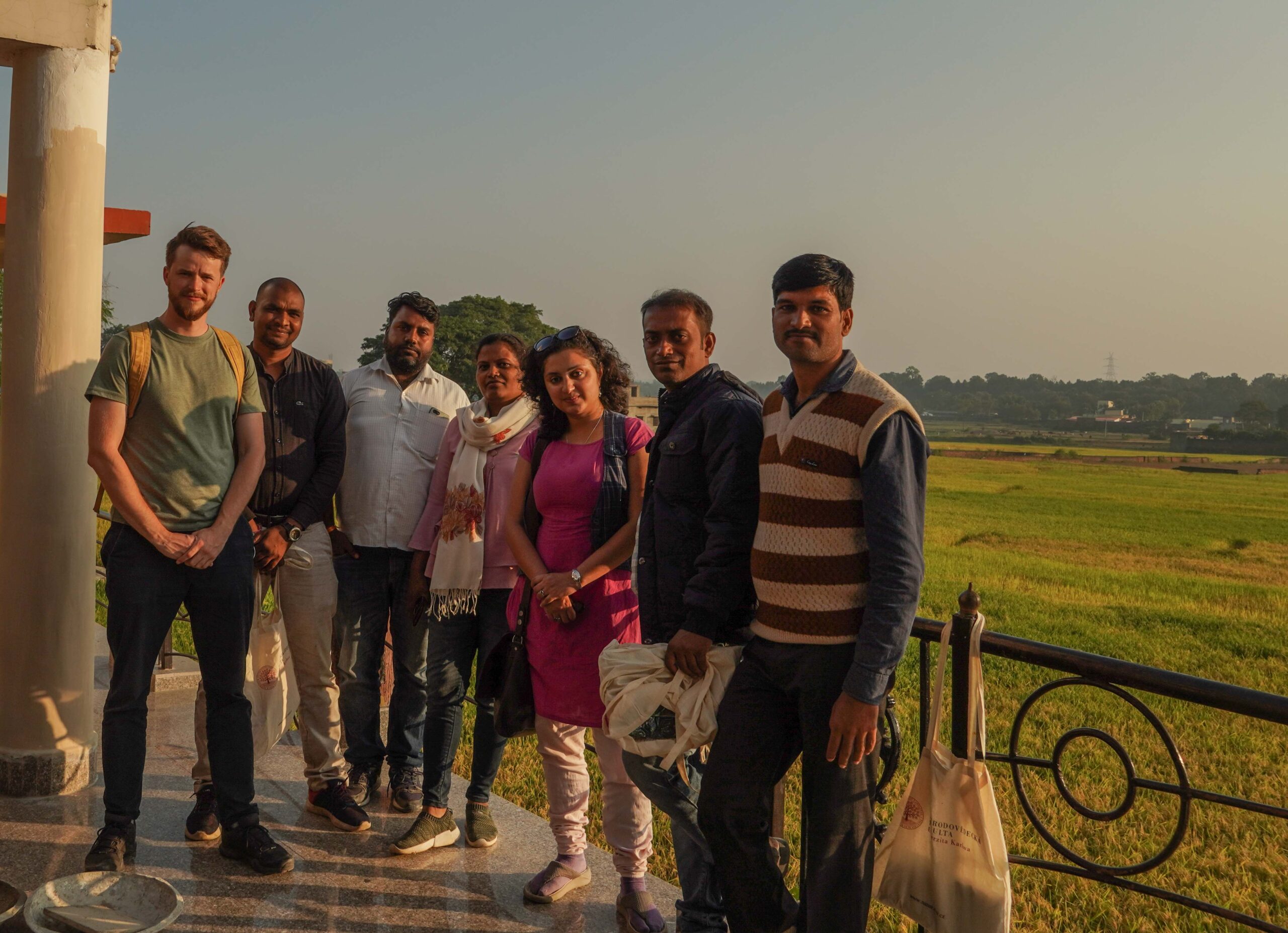Sanitation Change and Environmental Health in rural Jharkhand
You’re probably interested in my research work. I’ll start with the bigger projects I was involved in. Since 2015 I’m part of a research team The survey took place back in 2016 in rural areas around Ranchi, in the Indian state of Jharkhand. We collected all the data on paper forms, which was an absolute nightmare. 5000 sheets of paper was a bit too much.

Since I was the one who had to deal with it, I was pushing really hard for data collection on tablets next time we’re doing a field survey. So when we did that as a part of the second project in 2019, I had six iPads in my carry-on bag. And although there was some initial scepticism and overheating issues, we were able to do a much better job. Our target was to collect 600 questionnaires. We collected 850. I’m really proud of this work, especially since I was given more responsibilities in comparison with 2016, e.g. in the survey instrument design.

Apart from quantitative data we collected qualitative data through interviews with key stakeholders. In the 2016 round it was merely to get some supplementary contextual information but during the 2019 round we massively stepped up our game. In 2019 we did a full fledged qualitative research and we interviewed government officials, going all the way to the highest state-level administrators, and various village level health and sanitation workers.
The most interesting group were Jal Sahiyas (Hindi for water helpers), village volunteers that were tasks by the local government with basically constructing the toilets and making sure everyone is using them. And oh boy, is their story incredible. They take their job very seriously, even though they didn’t receive promised compensation, they protested, they were beaten, and they still do their job.
My other published research could be qualified as a discourse analysis. In this project I conducting semi-structred interviews with development practitioners, who had experience with CLTS – Community-led Total Sanitation. That’s a community mobilization intervention that deploys various participatory activities to create new social norms, which render unsanitary behaviour undesirable.
„Hang on, if you’re finishing your PhD, how come you only have two published articles?“ I almost hear you wondering. A valid question, indeed. I have been employed in two research projects funded by the Czech Science Foundation at Charles University. I joined the first one during my master’s programme and it concluded at the end of 2017. At that point the work was stalling a bit, which is why I joined STEM/MARK to gain some experience from outside academia’s ivory towers. Several publications came out of this project, I was the main author of one and a co-author in another one. We then applied for another grant in 2018, received the funding in 2019, and we spent the first half of the year preparing for the field survey, which we executed in the second half of the year. Since then we were again working on publications and even though the pandemic didn’t really help our scientific output, they are now close to being ready to be send out for peer-review. This time I’m a main co-author of one article and a co-author in two or three others.
Research in the private sector
In November 2017 I joined a public opinion and market research company STEM/MARK, to improve my data analysis, research design, and project management skills. I left in December 2018, when I moved to Stockholm for my Erasmus scholarship.
During my stay I organized research teams, led interviews, analysed collected data, and produced research reports. For data analysis I worked mostly in SPSS, although I occasionally used R (on a very basic level) or managed data in MySQL.
I worked with a diverse sort of clients. I managed regular reports for banks or event and media companies, but I also did research for government institutions and private industries.